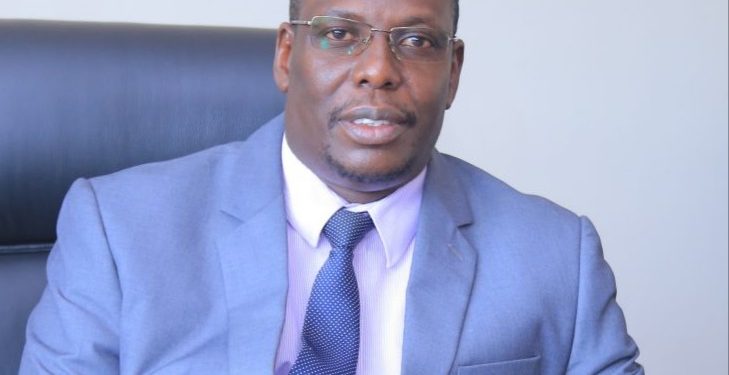By Bernard Ongodia
A baseline study conducted by the oil companies in 2013 followed by a capacity needs assessment by the government in 2014, placed the number of direct jobs in the oil and gas at 14,000.
This figure represents both opportunities in terms of employment and a gap as far as skills are concerned. Education service providers must warm up to the task – filling this skills void.
The training required in the oil and gas sector is highly specialized since the sector operates on high levels of standards. It means that if someone is trained in Uganda to be a technician, they can work anywhere across the world. They have a skill and qualification that is recognized internationally.
Locally, oil & gas companies like TotalEnergies EP Uganda and its Joint Venture Partners CNOOC (U) LTD, UNOC have already offered significant support in line with ensuring the skills training that will happen in Uganda aligns with international standards. For example, TotalEnergies supported the Uganda Petroleum Institute Kigumba (UPIK) in reviewing, validating and approving the Institute’s curriculum, to now a curriculum that is responsive to the labor market needs.
With the recent announcement of the Final Investment Decision (FID), the race to the development phase is on and so is the race to expedite the training of specialized personnel that will execute the works.
Uganda is fortunate to have established a national oil and gas training institute that will help address the skills gap at the technical and artisanal level in our emerging oil and gas sector. If a Ugandan wishes to acquire oil and gas skills today, he or she can look to UPIK.
The institute runs two important diplomas; Diploma in Upstream Petroleum Operations and Diploma in Downstream Petroleum Operations – each of them running for two years and accredited by the National Council for Higher Education (NCHE). In addition, the institute offers more than nine certifications including; upstream petroleum operations, downstream petroleum operations, mechanical maintenance, electrical maintenance, welding, fabrication & pipework, instrumentation maintenance, health safety and environment, steel erecting and rigging, scaffolding.
We are fortunate to have fulfilled all requirements in time to guarantee that these programs are accredited internationally by bodies like City & Guilds, Engineering Construction Industry Training Board (ECITB), Offshore Petroleum Industry Training Organization (OPITO) and IFP-Training. This means our trainees’ competencies and qualifications are recognized globally and can therefore serve in the global economy.
One of the most significant milestones in terms of transfer of skills and technology for our Ugandans is perhaps a Memorandum of Understanding (MoU) signed recently between the Institute and TotalEnergies EP Uganda. The partnership will facilitate the training and competency assessment of technical personnel for the Tilenga project.
The training is phased in such a way that one year of training is undertaken at UPIK with the first half of training conducted by the UPIK instructors while the second part training will be undertake by both TotalEnergies and UPIK Instructors. Those who qualify during the first phase some of the trainees together with UPIK trainers will advance to France for another year, for further training which includes; hands-on activities at oil and gas production plants. After one year of training and exposure, the trainees have the opportunity of being hired by TotalEnergies EP under its Tilenga project.
After this training, Ugandan students can be assured that they will end up as technical grade personnel such as; production operators, mechanical maintenance technicians, electrical maintenance technicians, instrumentation maintenance technicians, inspection technicians, and laboratory technicians.
In a bid to produce human resource that will meet the skills requirements of the labor market, it is important that technical institutes adopt a demand-driven curriculum and competency-based training model. Of this, at least 60 percent of the students’ training period should be practical for it to be valuable.
A recent report by the World Bank and International Finance Corporations recommends targeted technical and vocational training efforts to fill skills gaps in close consultation with industry associations, as a way to address cross-cutting constraints to private sector investment.
Over the last 13 years, a total of 462 Ugandans have enrolled for oil and gas diploma programs while 579 have enrolled for international vocational qualifications at UPIK adding up to 1,041 trainees so far. These courses are designed in such a way that if you are doing a one-year international vocational course, you will spend 9 months at the institute with several industry on-the-job-orientation sessions, and the remaining 3 months will be spent doing l on-the-job-training with the industry.
Out of the 579 international vocation courses trainees, the majority are in Health, Safety and Environment (HSE), which is a very critical component in oil and gas operations. The institute has embedded HSE in its culture, which is why most UPIK graduates have easily found employment as safety managers in different sectors of the economy.
It’s important to note the spill-over effect of these skills on other sectors of the economy. We have for example seen our graduates working with Kiira Motors Corporation, the sugar and brewing industry, hydropower projects among others.
Undoubtedly, oil and gas is a dawn for many benefits for Uganda, but the most important one will be the acquisition of specialized skills, competences and technology in a sector that is unique and of international significance.
The author is the Principal, Uganda Petroleum Institute Kigumba (UPIK).











